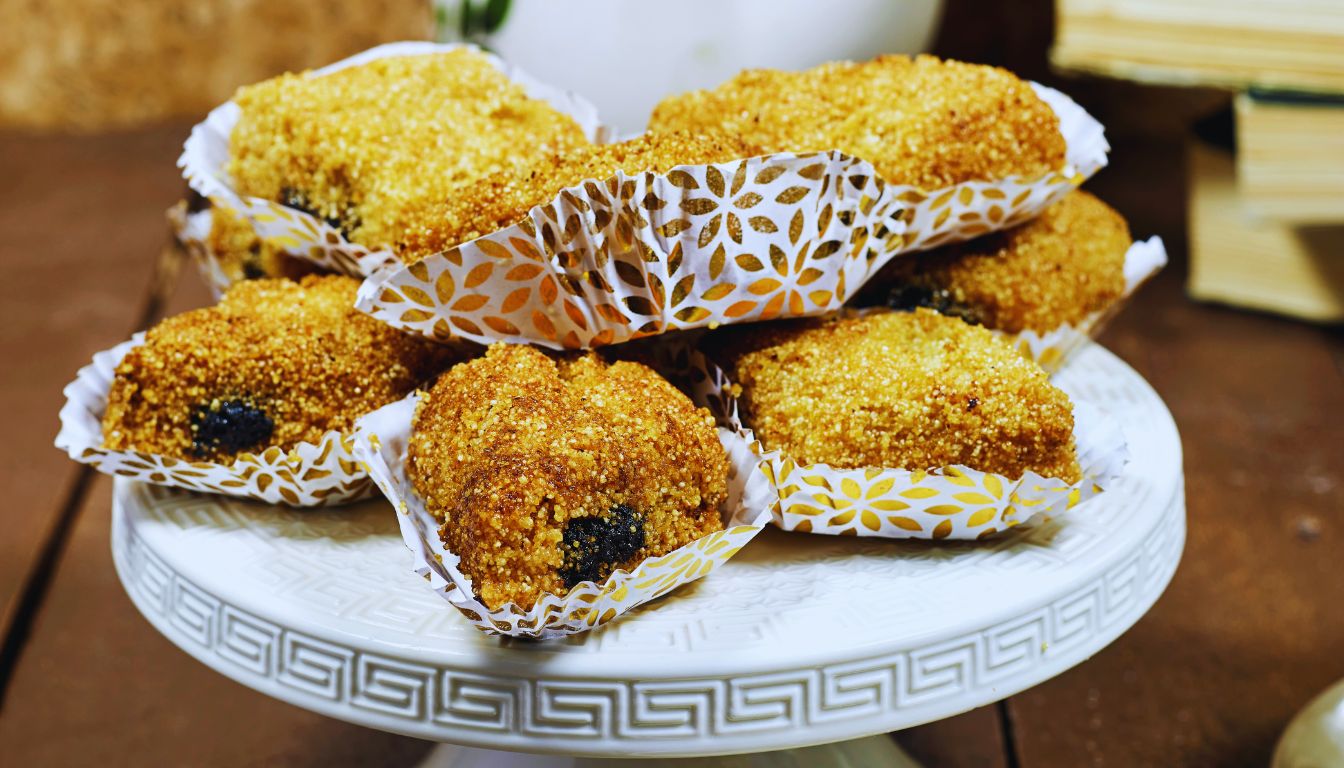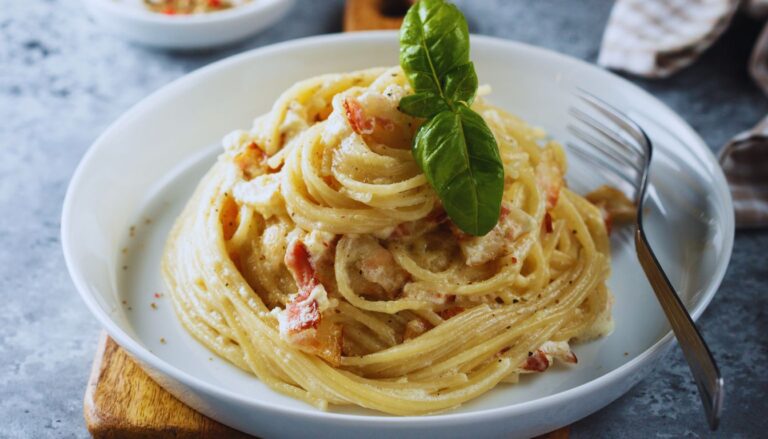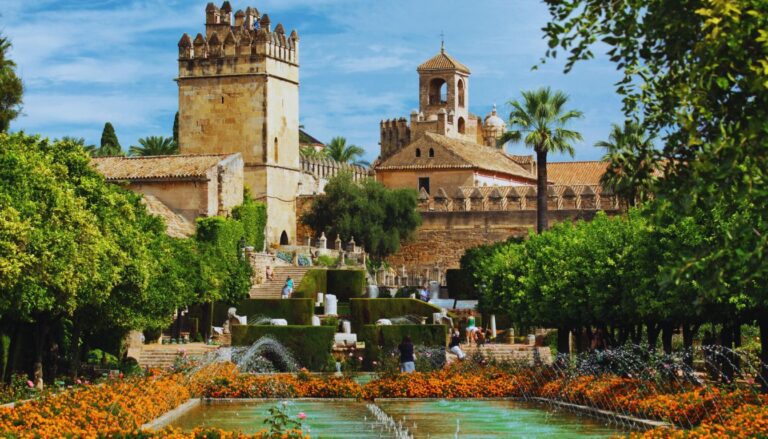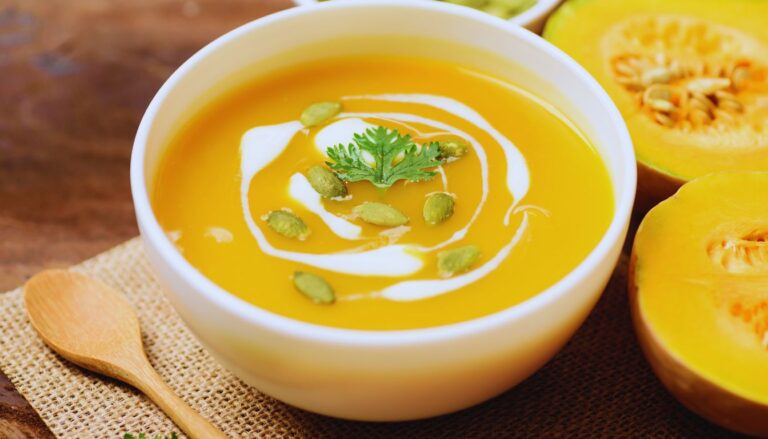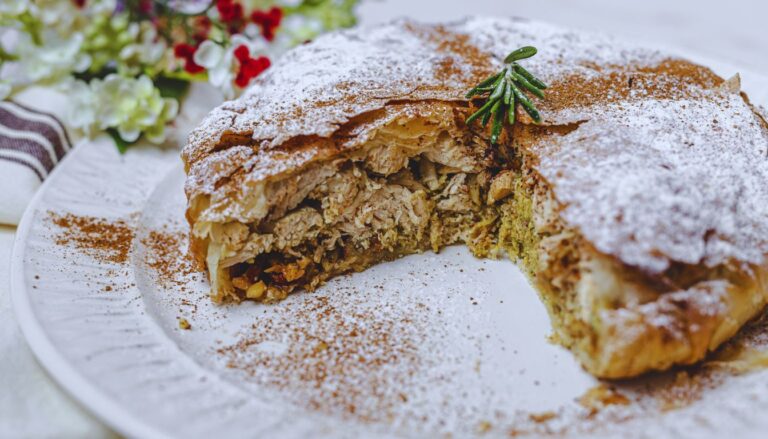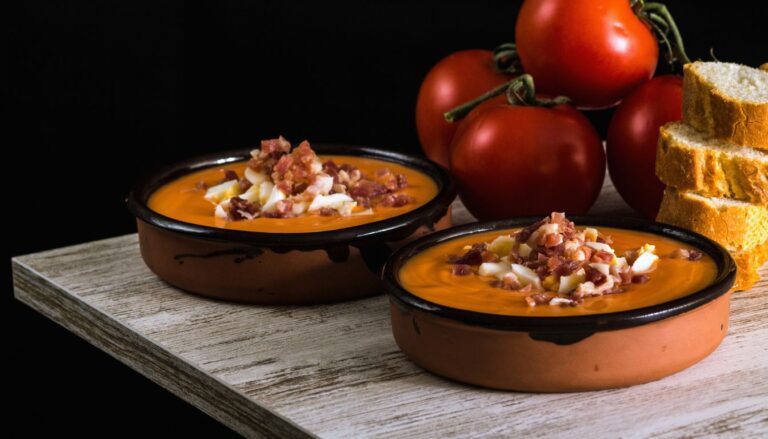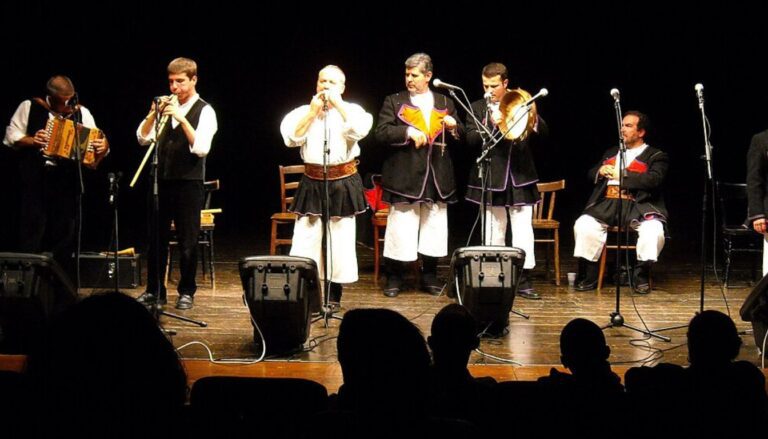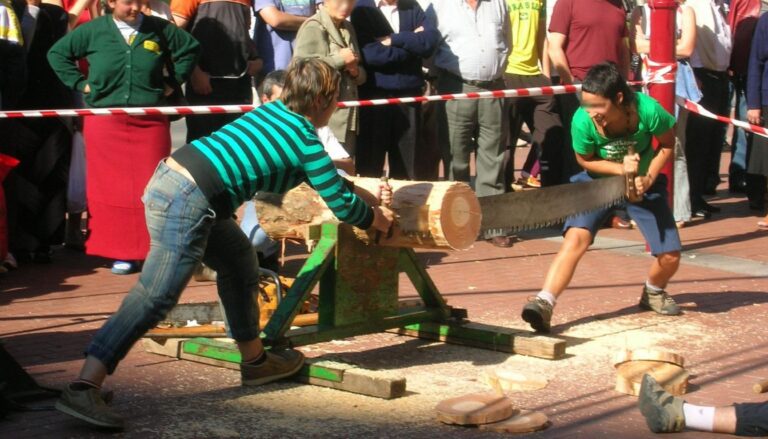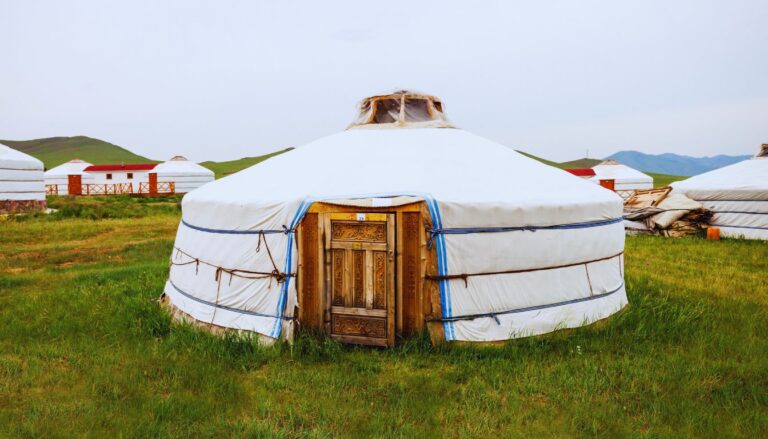Makroudh, Kairouan Tunisia
In the heart of Tunisia’s spiritual capital, Kairouan, the sweet aroma of date-filled Makroudh wafts through the ancient medina’s winding alleyways. This beloved diamond-shaped pastry, crafted from semolina dough and stuffed with dates, represents centuries of culinary artistry passed down through generations. As one of Tunisia’s most cherished traditional sweets, Makroudh embodies the perfect harmony between the golden semolina crust and the natural sweetness of dates, creating a treat that’s deeply woven into the fabric of Tunisian celebrations and daily life.
Table of Contents
Origins and History
Makroudh’s origins are intimately connected to Kairouan’s prestigious history as the fourth holiest city in Islam. Dating back to the 9th century, this sweet treat emerged from the city’s rich cultural tapestry, where Arab-Muslim traditions merged with local Berber influences. The recipe was refined over centuries by skilled artisans who passed their techniques from mother to daughter, making it an integral part of Tunisia’s culinary heritage.
The name “Makroudh” comes from the Arabic word “makrouda,” meaning “diamond-shaped,” reflecting its distinctive geometric design. Historically, these sweets were prepared for religious festivals and special occasions, though they’ve since become a year-round favorite in Tunisian households.
Cultural Significance
Makroudh holds profound cultural importance in Tunisian society:
- Essential component of religious celebrations
- Symbol of hospitality and generosity
- Represents family traditions and heritage
- Featured in wedding ceremonies
- Central to Eid celebrations
- Demonstrates culinary craftsmanship
- Reflects the importance of dates in Islamic culture
Ingredients and Preparation
The authenticity of Makroudh lies in its carefully selected ingredients and traditional preparation methods:
Essential Ingredients:
- Fine semolina flour
- All-purpose flour
- High-quality dates
- Orange blossom water
- Vegetable oil
- Sesame seeds
- Natural honey
- Ground cinnamon
Traditional Preparation Steps:
- Preparing the semolina dough
- Kneading with orange blossom water
- Creating the date paste filling
- Rolling and shaping the pastries
- Marking traditional patterns
- Deep frying until golden
- Soaking in honey syrup
- Garnishing with sesame seeds
Where to Try It
Notable Establishments:
- Patisserie Masmoudi: Famous for traditional versions
- Dar El Jeld: Historic setting with authentic preparation
- Patisserie Kairouan: Specializes in local sweets
- Souk des Pâtissiers: Traditional market vendors
Neighborhood Recommendations:
- Medina quarter for authentic experiences
- Near Great Mosque for traditional shops
- Old city markets for fresh preparations
- Modern city center for contemporary patisseries
Eating Etiquette and Customs
Understanding Tunisian sweet customs enhances the experience:
- Traditionally served with Tunisian tea
- Often presented on decorative plates
- Shared among family and guests
- Eaten with fingers, never utensils
- Best enjoyed fresh and at room temperature
- Important part of social gatherings
- Customary to offer to visitors
Seasonal Considerations
While available year-round, Makroudh has special seasonal significance:
- Ramadan: Peak consumption period
- Eid Celebrations: Special large-batch preparations
- Religious Festivals: Featured prominently
- Wedding Season: Custom-made varieties
- Date Harvest: Fresh ingredients available
Modern Interpretations
While respecting tradition, contemporary adaptations include:
- Reduced sugar versions
- Different date variety uses
- Creative shape variations
- Alternative nut fillings
- Baked versions instead of fried
- Decorative presentation styles
- Mini sizes for modern portion control
Practical Information and Travel Tips
Essential guidance for enjoying Makroudh in Kairouan:
- Best times to visit: Morning for freshly made batches
- Average price: 1-3 TND per piece
- Look for traditional preparation methods
- Visit during religious festivals
- Learn basic Arabic greetings
- Respect local customs during Ramadan
- Shop at authentic patisseries
- Consider cooking workshops
Making Your Kairouan Sweet Journey Memorable
Immerse yourself in the full cultural experience by visiting traditional bakeries, watching artisans at work, and learning about the spiritual significance of this beloved sweet. Take time to appreciate how Makroudh represents Tunisia’s rich culinary heritage and the warmth of its hospitality. Remember that in Kairouan, each bite of Makroudh carries centuries of tradition and the sweet taste of Tunisian culture.

